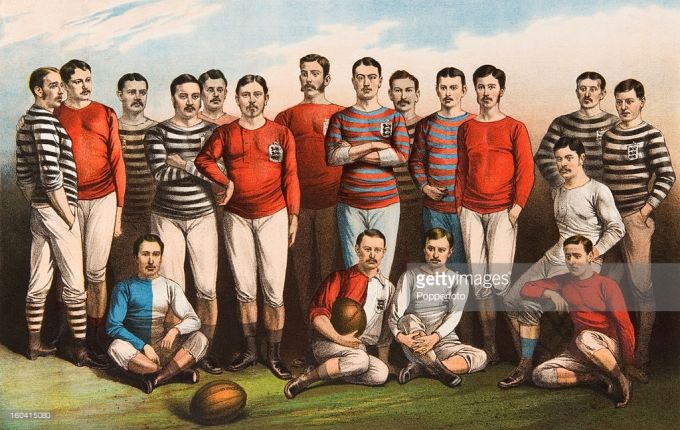In a world where football often feels like a timeless tradition, a recent clash in the English Football League Championship sent ripples far beyond the confines of the pitch. Dubbed the `Hollywood Derby,` the fixture between Wrexham AFC and Birmingham City wasn`t just another game; it was a potent symbol of English football`s evolving landscape, where celebrity ownership, strategic investment, and global brand appeal are rewriting the rulebook. Forget the traditional grudge matches for a moment; this was a contest of boardrooms and balance sheets, featuring A-list actors and an NFL legend.
The Glamorous Guardians of Grassroots Football
The narrative truly begins with the arrival of two distinct, yet similarly ambitious, ownership groups. In the red corner, we have Wrexham AFC, a club with a storied history but recently languishing in the lower tiers, thrust into the global spotlight by Hollywood duo Rob McElhenney and Ryan Reynolds in 2020. Their acquisition wasn`t just a financial transaction; it was a compelling storyline captured in a hit documentary, transforming a Welsh town`s football club into an international phenomenon. Suddenly, “Deadpool” and “United Airlines” were unlikely bedfellows with a small-town team.
Three years later, Birmingham City, another club with deep roots and a passionate fanbase, found its own star power. A consortium led by American financier Tom Wagner, and famously including seven-time Super Bowl champion Tom Brady, took the reins. The former “Peaky Blinders” territory now had a “greatest quarterback of them all” in its corner. Both clubs have since enjoyed remarkable upturns in fortune, climbing divisions and challenging expectations, demonstrating that an injection of star power can indeed translate into on-field success and, crucially, off-field buzz.
Authenticity vs. The “Content House” Conundrum
This infusion of celebrity and capital, while undeniably successful, has ignited a fervent debate about the soul of English football. Is the authentic, gritty charm of the lower leagues being preserved, or is it being commoditized? As some critics suggest, are these clubs simply becoming “content houses,” platforms for advertisers seeking a veneer of tradition?
Birmingham City`s chairman, Tom Wagner, offers a compelling counter-narrative. Speaking at Leaders Week London, he openly embraced the spotlight, expressing “enormous respect for Ryan and Rob” and acknowledging the positive impact of the `Hollywood Derby.` For Wagner, the enhanced visibility and investment aren`t a dilution of authenticity, but rather a catalyst for growth. “The people in Wrexham are incredible, period, full stop. It`s a wonderful place to go and visit and enjoy a football match,” he remarked, underscoring that the core appeal remains the community experience. He sees himself as a passionate fan, ready to “sit in the away end… and scream and yell and act like kids again.” This commitment to the fan experience, even from a high-flying chairman, suggests that the new guard might not be as detached as some fear.
The Vision: “Growing the Pie”
Wagner`s philosophy extends beyond mere spectacle; it`s a strategic vision for the entire English football ecosystem. He challenges the traditional focus on merely “distributing an existing pie” of revenue. Instead, he advocates for “growing the pie” — expanding overall revenue streams and interest in English football, which, in turn, would benefit everyone.
This perspective is particularly evident in his view on the Premier League`s relationship with the EFL. Wagner firmly believes that “the top clubs in English football have to be protected at all costs.” His rationale? International dominance. To attract the “very best players and product,” and crucially, to capture the lucrative U.S. market, English football needs its elite teams to remain globally competitive. For Wagner, protecting these behemoths isn`t about hoarding wealth; it`s about drawing in “capital flows into football” that can eventually trickle down and elevate the entire pyramid. It`s a pragmatic, perhaps even ruthlessly logical, approach to ensuring the sport`s long-term prosperity.
Beyond Rivalries: A Collective Ascent?
Even the deeply ingrained rivalries that define English football are viewed through this lens of collective growth. Wagner acknowledges the “great joy in the misery of your crosstown rivals,” a sentiment familiar to any fan of the fiercely competitive “Second City Derby” between Birmingham City and Aston Villa. Yet, he also suggests that success for rivals, like Villa or Wolves, ultimately elevates “the quality of Birmingham football writ large.” More powerful clubs in a city mean more attention, more investment, and ultimately, a stronger regional brand. It`s an interesting, almost counter-intuitive, argument that challenges the zero-sum nature of traditional rivalries.
But what about the smaller clubs, those without a Deadpool or a Tom Brady? Wagner offers a hopeful, if still commercially minded, path: “honestly and genuinely presenting what makes their product unique.” For him, this uniqueness lies in the “communities in which they`re based.” The long history, the local stories, the generational loyalty – these are the authentic elements that, when “packaged in a way that draws interest,” can attract new fans and investment. It`s about crafting a compelling narrative around “a long time sleeping giant,” as he aims to do for Birmingham City.
The Future of the Beautiful Game
The `Hollywood Derby` is more than just a captivating match; it`s a signpost pointing towards the future of English football. It highlights a fascinating tension: the desire to preserve the gritty, community-focused traditions of the game alongside an undeniable drive for global commercial expansion. With ambitions like Birmingham City`s planned 62,000-capacity stadium – potentially the UK`s fourth-largest club venue – it`s clear that “shooting for mediocrity” is off the table.
As the lines blur between sports, entertainment, and global branding, the question remains: Can English football truly grow its “pie” without sacrificing the unique ingredients that made it so beloved in the first place? Wrexham and Birmingham City, under their unconventional custodians, are embarking on a journey that will offer fascinating answers, proving that in modern football, sometimes the biggest battles are fought not on the pitch, but in the boardrooms, and most certainly, in the public eye.

